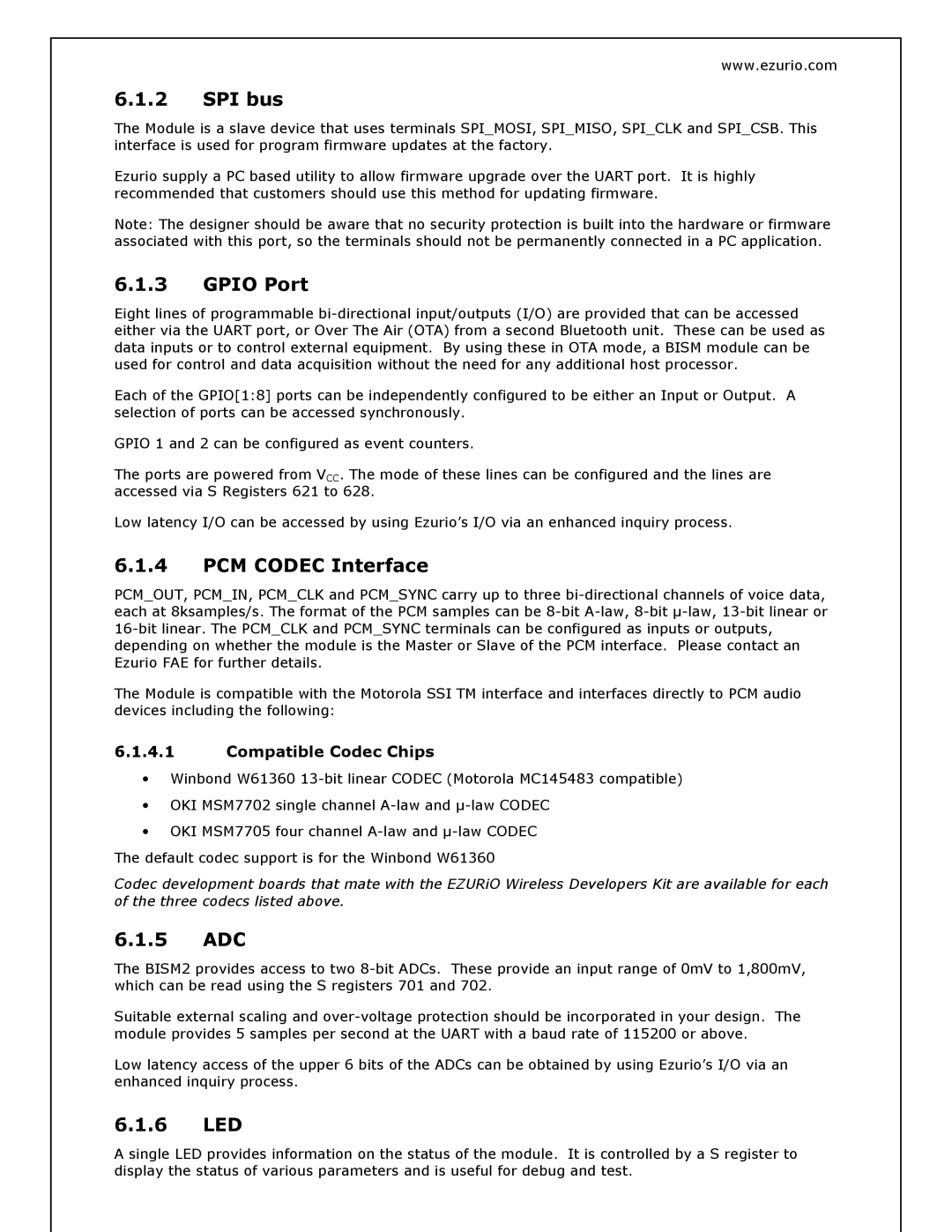
www.ezurio.com
6.1.2SPI bus
The Module is a slave device that uses terminals SPI_MOSI, SPI_MISO, SPI_CLK and SPI_CSB. This interface is used for program firmware updates at the factory.
Ezurio supply a PC based utility to allow firmware upgrade over the UART port. It is highly recommended that customers should use this method for updating firmware.
Note: The designer should be aware that no security protection is built into the hardware or firmware associated with this port, so the terminals should not be permanently connected in a PC application.
6.1.3GPIO Port
Eight lines of programmable
Each of the GPIO[1:8] ports can be independently configured to be either an Input or Output. A selection of ports can be accessed synchronously.
GPIO 1 and 2 can be configured as event counters.
The ports are powered from VCC. The mode of these lines can be configured and the lines are accessed via S Registers 621 to 628.
Low latency I/O can be accessed by using Ezurio’s I/O via an enhanced inquiry process.
6.1.4PCM CODEC Interface
PCM_OUT, PCM_IN, PCM_CLK and PCM_SYNC carry up to three
The Module is compatible with the Motorola SSI TM interface and interfaces directly to PCM audio devices including the following:
6.1.4.1Compatible Codec Chips
•Winbond W61360
•OKI MSM7702 single channel
•OKI MSM7705 four channel
The default codec support is for the Winbond W61360
Codec development boards that mate with the EZURiO Wireless Developers Kit are available for each of the three codecs listed above.
6.1.5ADC
The BISM2 provides access to two
Suitable external scaling and
Low latency access of the upper 6 bits of the ADCs can be obtained by using Ezurio’s I/O via an enhanced inquiry process.
6.1.6LED
A single LED provides information on the status of the module. It is controlled by a S register to display the status of various parameters and is useful for debug and test.
